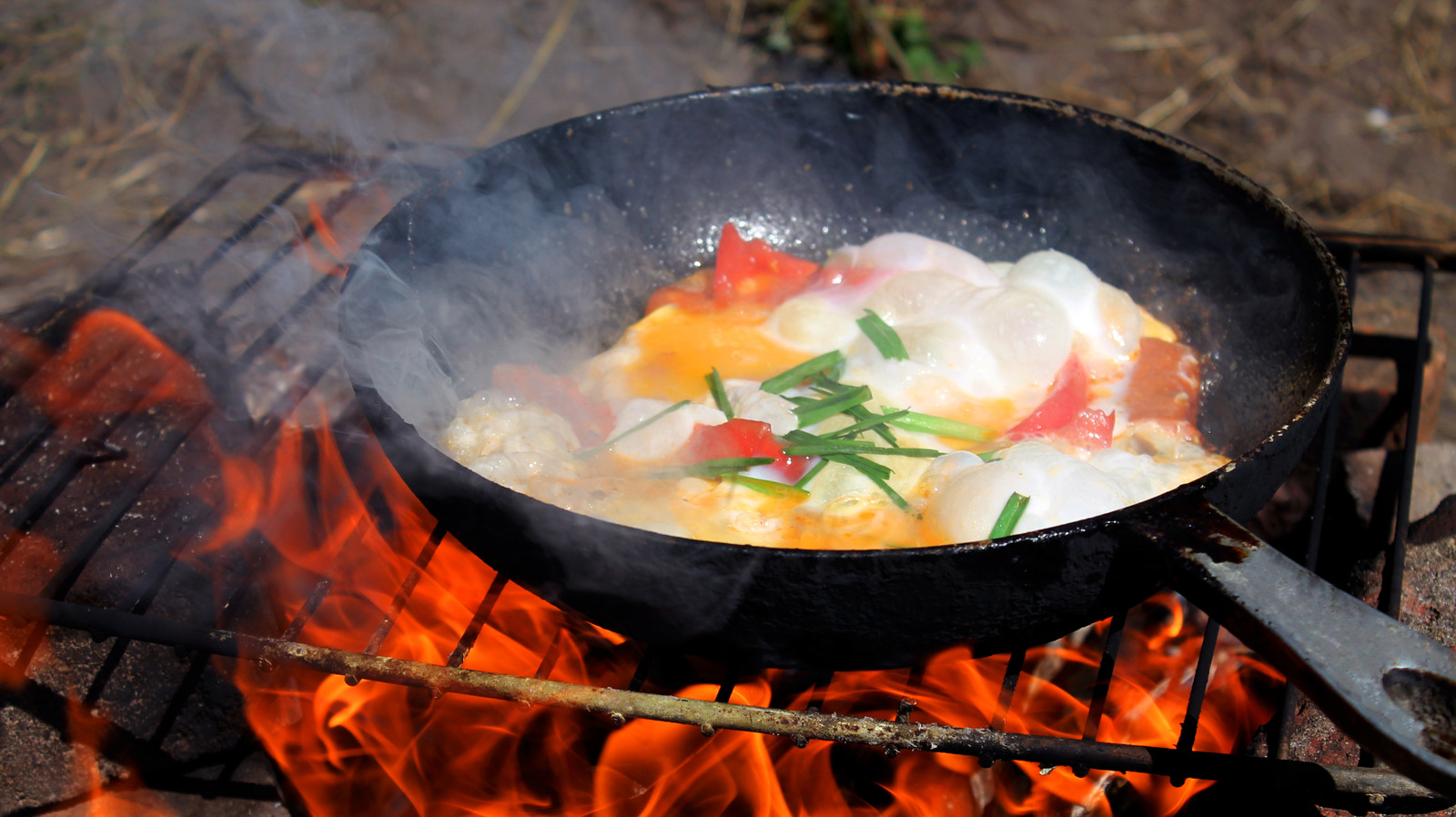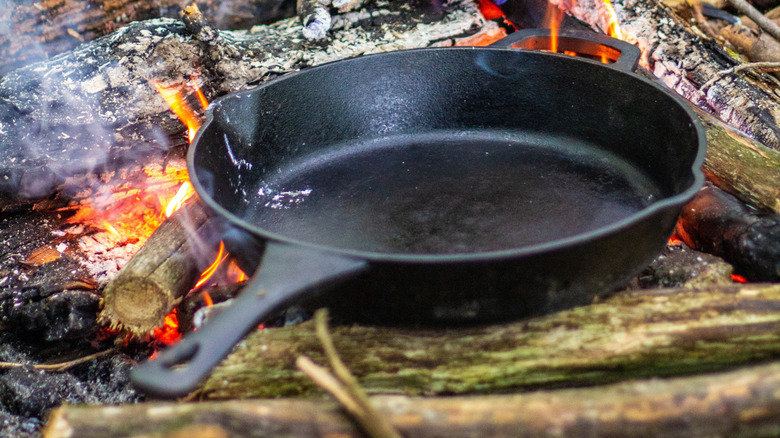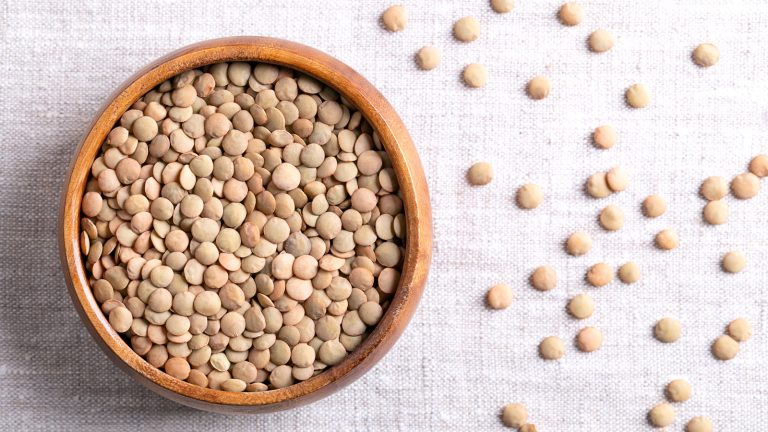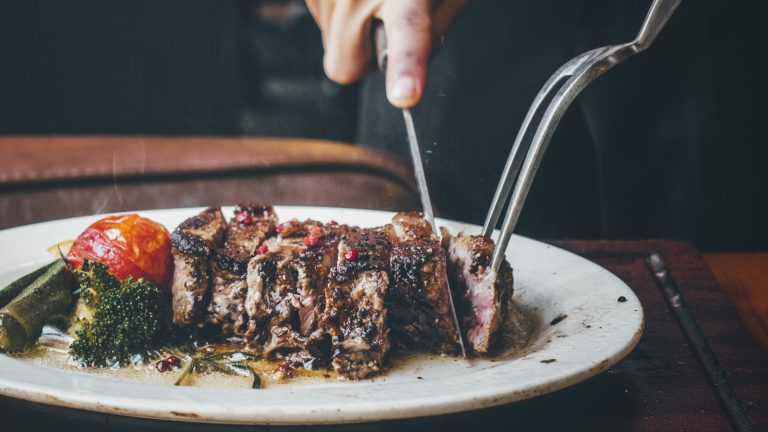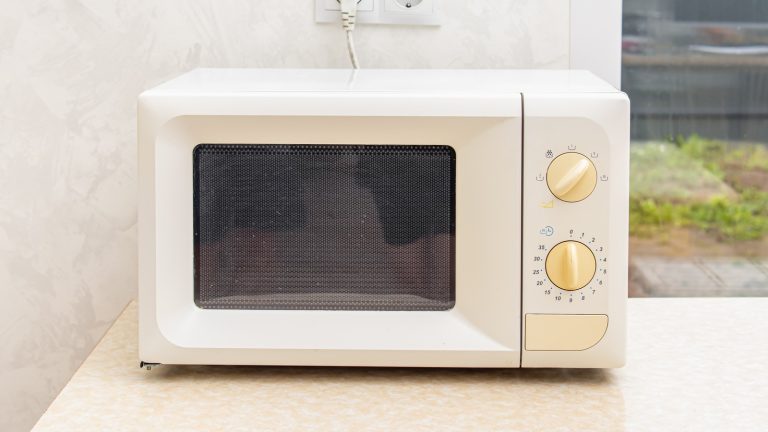Something about cooking and eating outside makes food taste better. Add a cast iron skillet and open fire to the cooking process, and now you have a totally rustic dining experience. There are a ton of ways to make the campsite cooking experience go smoothly, even if you bring your high-maintenance cast iron along for pancakes or omelets in the morning. You can even season the pan over an open campfire, but know that there is a right and wrong way to do it. And if you want to understand why it’s important to season a cast iron skillet, start here first.
Chowhound spoke to Rose Previte, the chef and owner of Maydan Market and author of “Maydan: Recipes from Lebanon & Beyond,” to learn the proper way to season a cast iron skillet over a campfire. First, Previte instructs, “You’re going to wipe down your skillet and dry it before adding a little bit of oil.” So clean off any food scraps or residue before beginning the seasoning process — as Previte explains, “You can also use salt for any stubborn things you can’t get off or if it starts to rust.”
Once the cast iron is clean, you can heat the light coating of oil (it shouldn’t be dripping). After the oil and pan have cooled, gently wipe out any excess oil with a paper towel. And how do you know it’s properly seasoned? The chef and cookbook author looks for a telltale sign: “You can do that a few times or whatever you have time for, but you’ll find the pan starts to have a clean shine.”
Important considerations for seasoning a cast iron skillet over an open flame
It’s an obvious fact to be aware of, but an open campfire is going to be a lot hotter than what you’re used to on the stovetop at home. It’s not possible to set the campfire to “low” or “medium” heat: Sure, you can make a small, petite fire or a roaring furnace, but it’s certainly harder to manage than the dial on the stove. Luckily, cast iron skillets are incredibly durable and can tolerate high heat and direct flames. What you should be more worried about is personal safety, and being cautious about handling a scorching pan during the seasoning process.
You can use an oil high in unsaturated fats, like vegetable or canola — no need for your fancy olive oils. As the oil heats, make sure it doesn’t burn; once it starts smoking, you should pull the pan away from the flames. Cast iron skillets also do not heat evenly, so the pan should be rotated around the campfire to ensure consistency. Both sides of the skillet can be exposed to the direct flames. As chef Rose Previte suggested, this process can be repeated several times as needed.
Previte reminded us that there is one mistake to avoid when seasoning a cast iron skillet over an open fire: “The key here is not using water.” Water can strip the seasoning from the skillet, so if you’ve recently washed your cast iron, be sure it is completely dry before adding oil.


